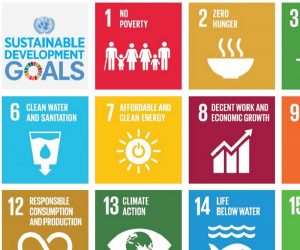The United Nations’ Millennium Development Goals (MDGs) are eight international development goals that, if met, would bring health and well-being to some of the world’s poorest and most at-risk communities. Covering topics included under the umbrella of the MDGs is one way to bring relevant, current, and real global issues into your classroom. The goals cover issues that are in the news daily and won’t be gone overnight: poverty, public health concerns, and environmental degradation. These are issues that your students – as community members, future leaders, and part of the ever-growing global family – must learn about today so they are prepared to solve them in the future.
The global challenges set forth by the World of 7 Billion student video contest relate to many of the MDGs. And as a classroom assignment, the video contest offers a creative way for your students to research, understand, analyze, and communicate about Millennium Development Goals.
The Worldwide Education Challenge
Worldwide, 1 in 10 primary school age children and 1 in 3 secondary age children are not enrolled in school.
Millennium Development Goals covered:
• MDG #2 – Achieve universal primary education.
• MDG #3 – Promote gender equality and empower women.
• MDG #4 – Reduce child mortality.
Education leads to better economic well-being, more stability, and higher levels of equality for communities, as well as increased opportunities and better health for individuals. And the first step to universal education, or education for all, is simply getting kids in school. In 2012, nearly 58 million primary school age children and 63 million adolescents were out of school, failing to receive a basic education. And while the gender gap is narrowing worldwide, the majority of children and adolescents out of school are still girls, even though it has been proven that girls’ education is vital to healthy babies, healthy mothers, and healthy families. How can we ensure children around the world have a chance to attend school and be educated?
Understanding the Challenge of the Sixth Mass Extinction
The world is in the midst of the sixth mass extinction.
Millennium Development Goals covered:
• MDG #7 – Ensure environmental sustainability.
• MDG #8 – Global partnership for development.
Biodiversity and healthy global ecosystems have not only intrinsic value, but play key roles in the day-to-day lives of humans from food production to clean water to medicines. Yet scientific evidence suggests that our modern day behaviors pose major threats to the biodiversity of the planet. To date, no other species has altered the physical landscape of the earth the way humans have – burning fossil fuels are changing the climate, increased carbon dioxide in the oceans is causing acidification and killing coral reefs and other marine life, deforestation is stealing the habitat of other plant and animal species, and pollution can be seen from industrial waste, agricultural practices, and individual people themselves. What can be done to stop the sixth mass extinction, for our own sake and the sake of our shared environment?
The Farmland Challenge:
Most of the world’s suitable farmland is already under cultivation.
Millennium Development Goals covered:
• MDG #1 – Eradicate extreme poverty and hunger.
• MDG #4 – Reduce child mortality.
• MDG #5 – Improve maternal health.
• MDG #7 – Ensure environmental sustainability.
Farmland worldwide is the source of most human-consumed food; the food that provides the calories and nutrients required to combat hunger and keep people healthy for long, prosperous lives. Well-fed mothers are better able to care for their children both in utero and throughout their childhood and are themselves healthier. But according to the UN, 1 out of 7 people around the globe are currently malnourished and yet future population and income growth will drive food demand in the coming decades, requiring the production of 80 percent more meat and almost 60 percent more cereals in 2050. As a result, marginal lands are being cultivated and forests cut down to meet this demand. More water and energy are being consumed as a means to support crops and produce higher yields. Pollution from chemical fertilizers for crops, manure from animals, and emissions from transporting foodstuffs are having further impacts on the environment. To feed future populations, what can be done to better utilize the farmland we already have and ensure food security for all?
Learn more about the three global challenges being tackled by the World of 7 Billion student video contest by visiting the page of Research Resources. You’ll find a background reading on each challenge as well as articles, websites, and books to explore the topic even further.



